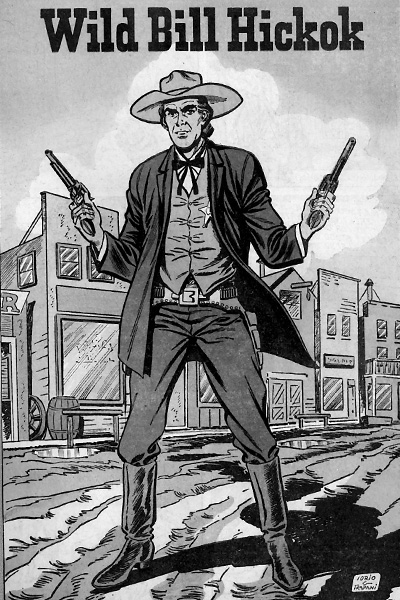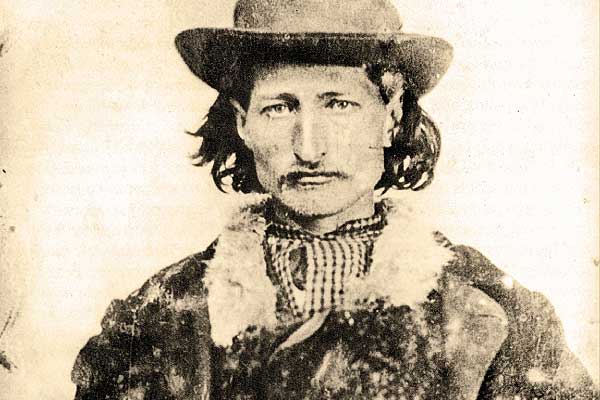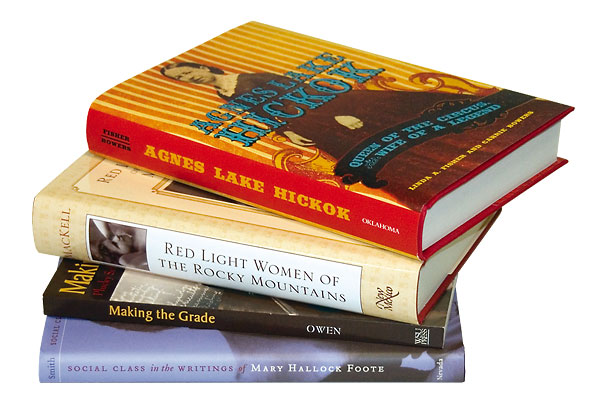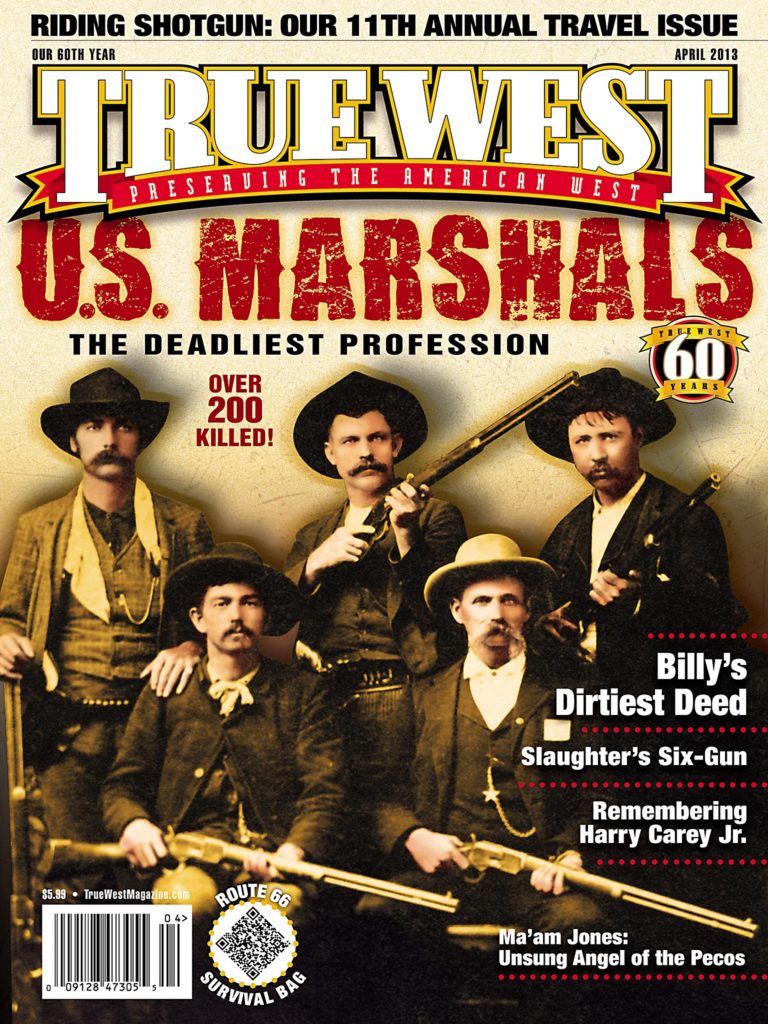 Joseph G. Rosa has spent over 40 years researching the truths, myths and legends of Wild Bill Hickok. He has produced five books on the subject, including, They Called Him Wild Bill: The Life and Adventures of James Butler Hickok, which many consider the definitive Hickok biography. Rosa rarely sits for interviews, so when co-editor and fellow Wild Bill scholar, Thadd Turner conducted the following Q&A via the internet, we were all excited to get a personal and up-close visit with the Master of the Hickok “vault of knowledge.” Rosa’s most recent book, Wild Bill Hickok: Gunfighter, covers the gunfights of the legendary frontiersman in detail. Rosa lives in Ruislip, Middlesex, England.
Joseph G. Rosa has spent over 40 years researching the truths, myths and legends of Wild Bill Hickok. He has produced five books on the subject, including, They Called Him Wild Bill: The Life and Adventures of James Butler Hickok, which many consider the definitive Hickok biography. Rosa rarely sits for interviews, so when co-editor and fellow Wild Bill scholar, Thadd Turner conducted the following Q&A via the internet, we were all excited to get a personal and up-close visit with the Master of the Hickok “vault of knowledge.” Rosa’s most recent book, Wild Bill Hickok: Gunfighter, covers the gunfights of the legendary frontiersman in detail. Rosa lives in Ruislip, Middlesex, England.
TW: When did you first discover Wild Bill?
Rosa: I first encountered Hickok in a movie when I was about seven years old. At that time, many youngsters, both sides of the Atlantic, regarded Western movies as a way of life, and we all had our favorite Western star. Mine was Buck Jones whose tragic death in 1942 came as a great shock. As for Hickok, I first saw him portrayed by Bruce Cabot in Wild Bill Hickok Rides; but it was Gary Cooper as Hickok in The Plainsman that really impressed me. I began reading and collecting anything I could find on Wild Bill, and by the early 1950s, I had discarded the Hollywood version and concentrated upon the real Hickok. In my youthful arrogance, I then decided I should write a book—little realizing how difficult that would be!
TW: Why do you think you found Hickok so fascinating?
Rosa: It was the enigma of a man who was both a romantic and a tragic figure that appealed to me. Let’s face it, the name “Wild Bill Hickok” sounds romantic to child and adult, and in appearance he looked as most Easterners believed a Western gunfighter should look. In reality, of course, looks are immaterial. Rather, it is the character of the individual and how he handles himself and others that counts.
TW: Do you think you’re obsessed with Hickok?
Rosa: Certainly, I would have liked to be able to fill in the gaps and add more facts, but I have never felt obsessed or possessed by Hickok. It came as a shock to learn at the Western History Conference in San Antonio last October that my old friend Leon Metz had reportedly been “possessed” by the evil spirit of John Wesley Hardin [while Metz was writing his book on Hardin]. I have heard nothing further on the subject and hope that it was only a tasteless rumor.
TW: Many of us in the United States find it incredible that an Englishman would devote so much time and energy to researching an American legend. Did the distance across the Atlantic ever deter you from your quest for the truth?
Rosa: Distance was a problem, and my first attempts to gain information from America were not very successful. However, I was very determined and found that people, especially in historical societies were willing to answer questions, and United States postmasters often passed on letters to likely sources or individuals. I soon learned the art of asking the right questions, and explaining why I wanted the information. When I eventually met some of the people I had corresponded with, they told me that it was my enthusiasm and explicit requests that encouraged them to help.
At one point, I was sending three or four letters a month to the Kansas State Historical Society. These posed sometimes difficult questions, so the director, Nyle H. Miller, asked Joseph W. Snell (who himself later became the society’s director) to undertake the task of answering my queries. Both Joe and Nyle later told me that my queries led to them learning more about Hickok and other gunfighters. Such sources proved invaluable when they began their own mammoth task that led to their 1963 publication Why The West Was Wild (later republished as Great Gunfighters of the Kansas Cowtowns, which is still in print).
TW: When They Called Him Wild Bill was first released in 1964, it contained an incredible amount of never-before-published material. Your personal access to the Hickok family and their archive is legendary. How did you gain their trust?
Rosa: When I first approached the Hickok family in the 1950s they were courteous but not forthcoming. After a century of such requests, and the occasional abuse from anti-Wild Billites, while they appreciated my interest, from such a distance, they were not prepared to help. Fortunately, my defense of Hickok when a newspaper defamed him (I forget where in Illinois this appeared) changed their attitude, and I was presented with a photograph of Wild Bill by Horace Hickok, one of Wild Bill’s two surviving nephews, that I used on the jacket of my first book. The family was amazed by the amount of information I had gathered. Consequently, when I arrived at Troy Grove on October 6, 1965, in company with a friend from nearby Princeton, I was welcomed by Horace and his wife Louise. They showed me some Wild Bill items, and then insisted that I meet his sister Ethel who knew more about “Uncle Jim” than anyone. When I was introduced to her, she said that she was “mad at Horace” for not telling me about her when I was writing my book. Nevertheless, she, too, made me very welcome and soon we were poring over her scrapbooks and other materials. It was the beginning of a friendship that lasted until her death in 1985 in her one-hundredth year. Besides Horace and Ethel, I had also corresponded with their brother Howard. Howard had been a thorn in the sides of a number of writers whom he accused of lying about his uncle, Jim, but when I got to know him, he was most helpful. I also learned something of his dealings with William E. Connelley in the 1920s.
TW: Tell us more about Ethel Hickok. What physical similarities or traits do you think she shared with her famous uncle?
Rosa: I do not know whether Ethel Hickok inherited any of her uncle’s traits; but she was a remarkable lady. She was as “sharp as a tack,” and might best be described as a female Harry Truman with a great sense of humor. On one occasion, she was approached by a lady who told her that her uncle Jim (as Ethel always referred to Wild Bill) had shot her uncle, to which Ethel replied: “Then I guess he needed killing.” This amused the lady, and the pair became very friendly. Following her mother’s death in 1932, Ethel took charge of the family archive, but was reluctant to share it. Although I corresponded with her regularly for seven years, and visited her for a couple of hours each October to discuss Uncle Jim, she would not divulge much. Then I made a dramatic breakthrough: I discovered where in England, in 1849, her mother, Martha Edwards Hickok, was born (the Edwards family emigrated to the United States in 1851 and settled in Troy Grove). I ordered a copy of her birth certificate which I mailed to Ethel. Her niece Edith Harmon later told me that when Ethel saw the British crown surmounting what was an official document, she burst into tears. My arrival some weeks later was greeted with an array of letters, and two very rare photographs of Wild Bill which were copied at my expense and used in the revised version of They Called Him Wild Bill, published in 1974.
I first met Edith Harmon during my early negotiations with Ethel. She was the family historian and author of two fine books on the subject (Another Man Named Hickok, about Wild Bill’s great-grandfather Aaron and the early history of the family, and Pioneer Settlers of Troy Grove which covers the immediate family’s history). Edith proved to be a tower of strength, and prior to the discovery of the birth certificate, had often interceded with Ethel on my behalf. Sadly, Edith died in July 2000 and is much missed; but she was glad that so much family history got into my books or has been preserved (much of it at the Kansas State Historical Society).
TW: It is evident from your relationship with the Hickoks that many people were of assistance to you. But what of those who either resented you, or considered you a rival? In particular, Mari Sandoz, who you mention in several of your books?
Rosa: Yes, I have had problems! Mari and I never saw eye to eye, and I still think she fictionalized materials to suit her text. You may recall that in her novel The Buffalo Hunters she claimed that Hickok had serious eyesight problems and visited the army surgeon at Camp Carlin, Wyoming Territory, who told him he had glaucoma which was incurable and he would soon go blind. Despite some intensive research, aided by an ex-senator from Nebraska and experts, no such report has been located. I later learned that Camp Carlin was only a remount depot and had no surgeon, the nearest one being at Fort D.A. Russell. Nothing was found in those records either. Now, we do know that Hickok had an eyesight problem in 1874. It was at first thought to be connected with the calcium lamps used during his stint with Buffalo Bill’s Combination. He wore dark glasses for a while and during the next two years he was reported to have had some treatment, possibly in Kansas City where he knew the redoubtable Dr. Thorne. When I spoke to two eye surgeons they both said that glaucoma in someone of Hickok’s age would be very rare and unlikely; but it could have been trachoma, a highly contagious disease of the eyelids which was painful and sight-threatening, but treatable. So, unless the army report or some conclusive evidence is found, Hickok’s eye problem will remain the subject of speculation.
The late Paul Riley of the Nebraska State Historical Society once told me that had Mari and I met face-to-face, he believed that we would have got on. But I fear that this would not have been the case with the likes of Harry Sinclair Drago, Carl Breihan or James D. Horan, all of whom I “crossed pens” with at various times. Drago, an ex-B Western film-script writer achieved a good reputation as a novelist, but in my opinion did not do at all well with factual materials. Horan was a very capable individual but he, too, liked to manipulate his materials to suit his text. Breihan, however, was the only one of the three who engaged me in correspondence. He seemed to delight in inventing conversations and making unsupported statements. Why he did so I have no idea, for I think he could have achieved a great deal had he kept strictly to facts. Of course, I, too, have my critics, disgruntled rivals, and some who resent my nationality, my interpretation of Hickok and my success, yet would not be prepared to undertake such protracted research themselves. Others have declared me biased in Hickok’s favor, which I admit I am when the facts justify it, and there are those who accuse me of not responding to criticism or accepting a different view point. As for that, I recall the late lamented Don Russell’s reaction when confronted by critics of Buffalo Bill. Don said that he would be prepared to accept any criticism of Cody provided it was based upon fact. And then there was the occasion when I used the word “discovery” in connection with the Jack McCall pardon file. An erstwhile friend attacked me in print alleging that he had found it before I did, I had no right to claim it as a discovery—the fact that no one knew he had a copy did nothing to placate his anger! But the sobering comment came from Joseph W. Snell when, on one occasion, I told him that I had discovered an unknown newspaper reference to Hickok. He was delighted, but said “you have merely re-discovered something that was once public knowledge!” I guess that puts us all into perspective!
TW: How did Colonel George Ward Nichol’s romanticized article in Harper’s New Monthly Magazine in 1867, which was littered with fiction, affect future stories about Wild Bill?
Rosa: It must be remembered that long before the Harper’s article, Hickok was generally known in southwest Missouri and parts of Arkansas as “Wild Bill,” and by 1865 he had also earned quite a reputation as a scout and spy for the Union. His employer, General John Sanborn, later stated that he was the best man he had. When Colonel Nichols appeared in Springfield in the summer of 1865 and met Hickok, he, too, was impressed with the man. Like most frontiersmen, Hickok was a great leg-puller, and it is unfortunate that despite some intensive searching for Nichol’s journal and diary covering the period, they have not been found. If discovered, they might provide important clues both concerning the interview and whether Nichols or Harper’s contributed to the fiction. Yes, Harper’s did play a large part in perpetuating the Hickok myth, but don’t forget that when reviewing the story, some editors made it clear that Hickok’s real exploits were already well known in parts of Kansas and Missouri, especially the so-called McCanless “Massacre.” Henry M. Stanley, soon after the publication of the Harper’s yarn, contributed further to the debate and added some yarns that Hickok (or others) told him. This encouraged the border scriveners, who delighted in upping Hickok’s tally of dead “bad men,” to contribute toward the creation of a character totally unlike the original.
TW: When did James Butler Hickok become known as
“Wild Bill?”
Rosa: Some claim that the name was bestowed upon him by Ned Buntline, others by James Buel, or that he invented it for himself. None of these explanations are true. Ethel Hickok said that her father Horace told her that he won the name in the Civil War. My own research disclosed that as early as 1856, for an indeterminate reason, James was known in Kansas as “William.” Ethel recalled that somewhere in the family, someone had been called “Billy Barnes” and that James used that name on occasion. In the Harper’s yarn, Hickok said he borrowed it from a Texan he had known when spying. Similarly, some official records prior to, and during the Civil War, do show him as William Hickok.
George Hance, a friend of the Hickoks, alleged that James won the name “Wild Bill” at Independence early in the war when he stopped the lynching of a bartender. But his brother Horace’s reference to the Civil War is probably the most likely explanation. Indeed, William Pound, the prosecutor in McCall’s trial at Yankton, stated in 1877, that Hickok won the name “Wild Bill” for his actions against Confederate guerrillas and bushwhackers in Missouri during the war. Pound is believed to have based his information on conversations with men who had known or fought with Hickok during that conflict. But whatever the origin of the name, it was to immortalize James Butler Hickok.
TW: What if Jack McCall’s first shot had misfired?
Rosa: Had McCall’s pistol misfired, we can assume that Hickok would have shot him dead—or others might have restrained Jack. In any event, Wild Bill would have survived. What we cannot predict, of course, is what might have happened to Hickok later. Someone else might have tried to kill him to gain a cheap reputation. Or, perhaps, he may have prospected and found gold and sent for his wife, or gone back East to her. We will never know. But because of his tragic end, there will always be those who will speculate as to what might have happened “if.” . . . Meantime, the real and imaginary Wild Bill Hickok remains a folklore hero and a frontier icon.





